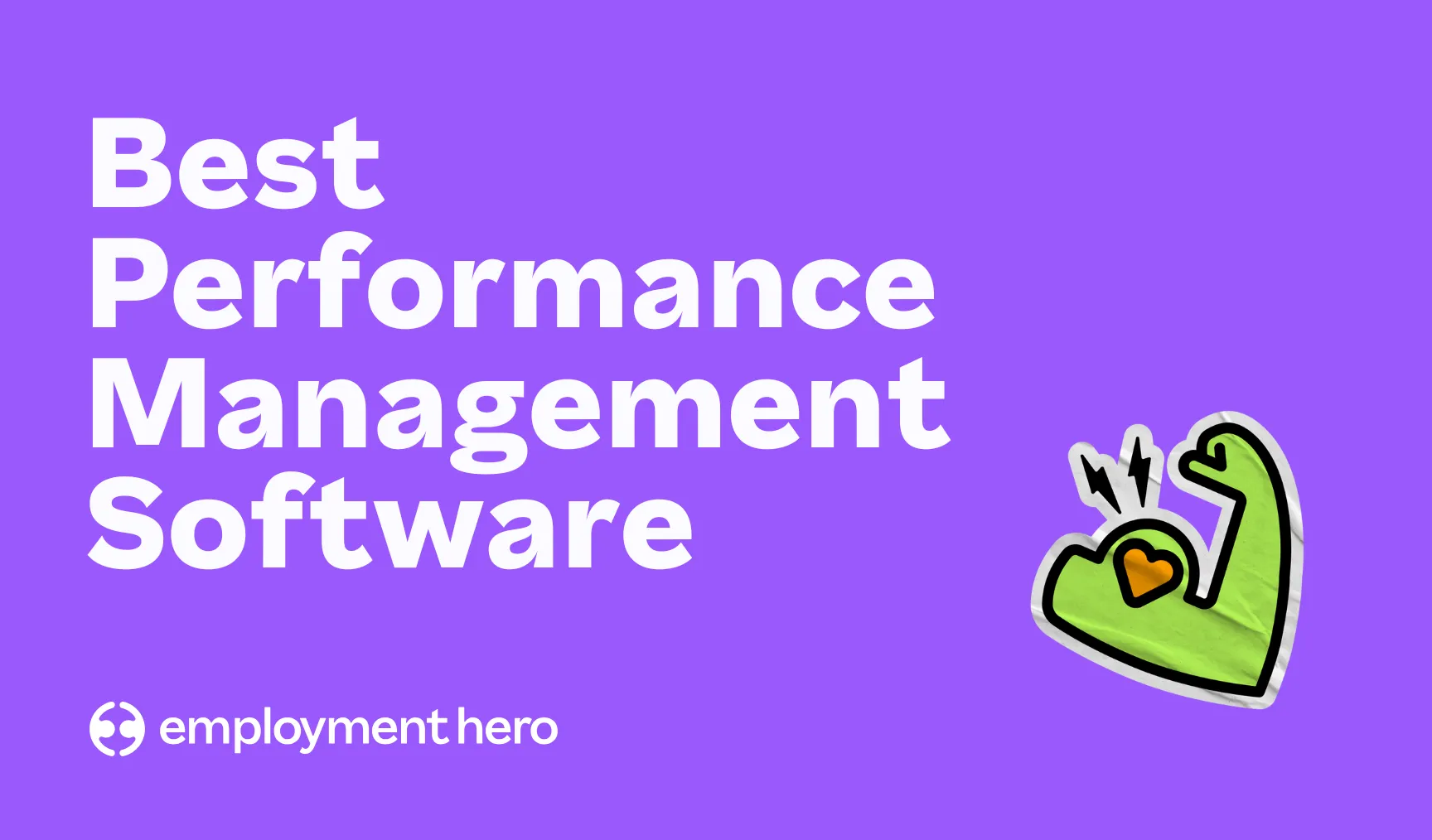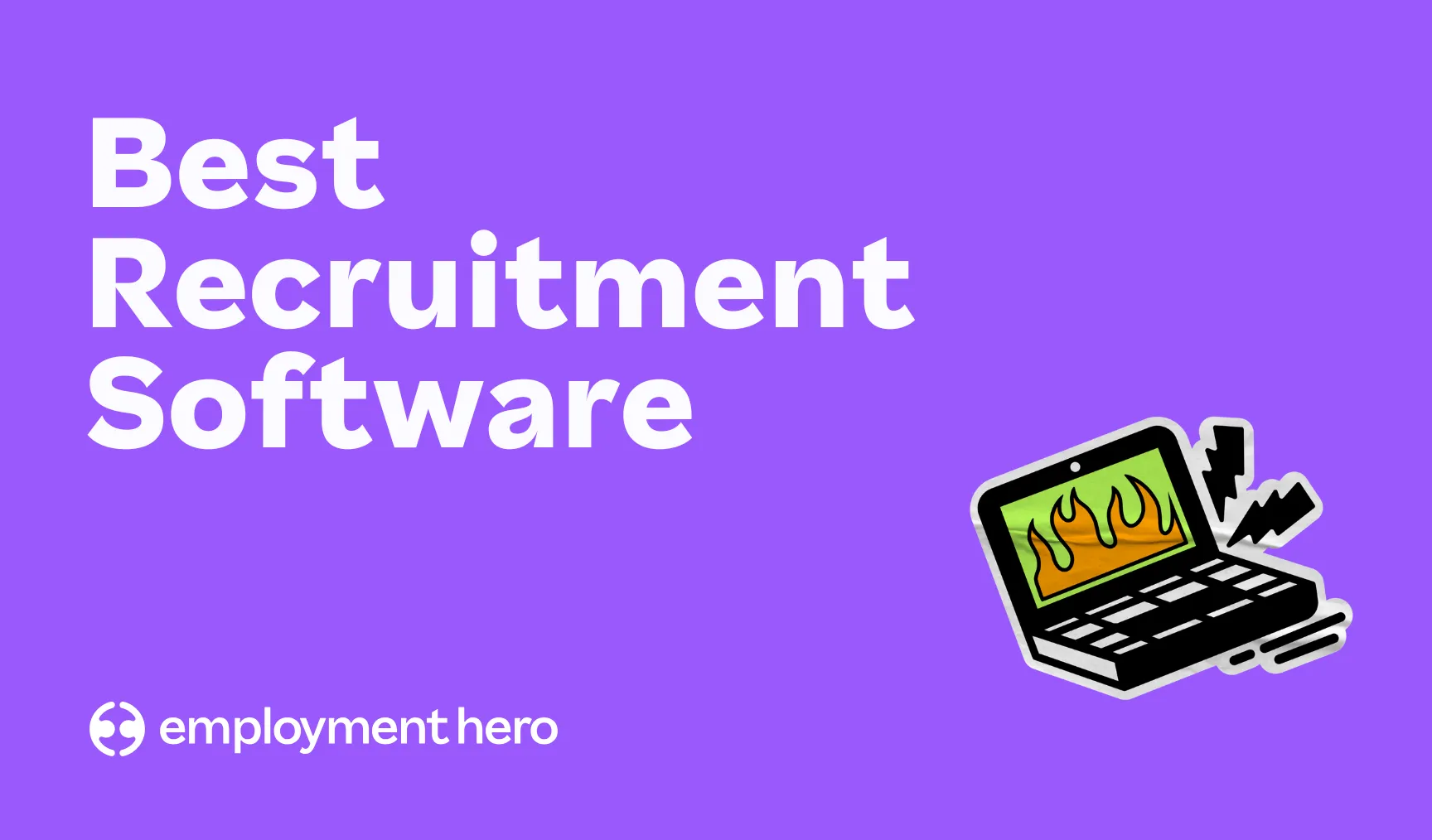Hero Points and FBT
Employment Hero’s Hero Points may qualify for a Fringe Benefits Tax exemption, making them a cost-effective employee reward option.

Employment Hero has received a private ruling from the Australian Taxation Office (ATO) that confirms Hero Points are a non-cash benefit provided to an employee at the time the reward is given to an employee. It further provided that, where certain conditions were met, there was potential for the Hero Points to be exempt from employer fringe benefits tax (FBT). This makes Hero Points not just a great tool for recognition, but also a cost-effective one.
For those considering the implications of FBT on employee gifts, our guide to employee gifting and fringe benefits tax provides valuable insights and tips.
Hero Points may be exempt from Fringe Benefits Tax (FBT) under the minor benefits exemption. The exemption applies when Hero Points are provided to employees under specific conditions. To qualify for this exemption, the benefit must be provided to an employee infrequently and irregularly, must not be a reward for services, and its value must be less than $300 (including GST).
In the context of Hero Points, this could potentially apply if the benefits provided are less than a certain value each time, in total across the year, and meet other specific conditions. For accurate and detailed information, it is recommended to consult the ATO website directly here or seek professional advice as each organisation’s situation may be different.
FBT refresher
Already an FBT expert? Jump ahead to learn more about how Employment Hero is using the private ruling to support our reward and recognition initiatives.
What is the fringe benefit tax?
Introduced in 1986, the fringe benefit tax is paid by employers on any gifts or perks that an employer might use to attract and retain employees in addition to ordinary earnings.
For argument’s sake, imagine if an employer offered a base salary of $50,000 per annum, but also covered its employees’ private health insurance, gym memberships or childcare fees. An employee’s income would effectively be much higher, but they would only pay income tax on $50,000. Without FBT, the tax man would lose out, especially if those gifts or perks are tax deductible.
What’s the difference between bonuses and fringe benefits?
Bonuses, back payments, commissions and similar payments are part of an employee’s ordinary earnings and the employee will pay income tax on these.
Fringe benefits on the other hand, are provided by the employer in addition to ordinary earnings. If the fringe benefits are liable for tax—this is paid by the employer.
The income tax year also runs from July to June and is payable to the ATO, while the FBT tax year runs from April to March and is payable to state governments (like payroll tax).
What are some examples of fringe benefits?
Like the FBT examples above, fringe benefits are anything your employer offers as a perk or gift, such as providing a work car for private use, a discounted loan, paying for courses, or entertainment. These examples would likely incur the fringe benefit tax.
What are exemptions?
The ATO has agreed that some fringe benefits should be exempt from fringe benefits tax, while some not-for-profit organisations may also be eligible for FBT concessions. Most exemptions and concessions are specific to your organisation and industry, whereas minor benefits exemption can apply to all businesses, and tends to cause the most confusion.
What is the minor benefits exemption?
When a fringe benefit is both less than $300 in notional taxable value (that is, the value if it was taxable), and unreasonable to be treated as a fringe benefit, it can fall under the ATO’s minor benefits exemption.
When you dive into the finer details of the minor exemption rule, it can quickly fall into the too hard basket. As a result, some businesses think it’s cheaper (or at least easier) to pay FBT (currently 47%!) by default instead of wasting time and resources trying to keep track of minor benefits.
The example below shows the advantage of utilising a FBT exemption, such as the Minor Benefits Exemption (MBE) when providing benefits to your employees.
Organisation 1:
An employee is provided with 1 x $300 gift voucher, thereby not meeting the requirements of the MBE and FBT is payable (assuming no other exemptions are applicable).
Organisation 2:
An employee is provided with 2 x $150 gift vouchers throughout the FBT year. Each benefit falls within the ATO guidance as being an infrequent and irregular benefit, are not connected benefits and are less than $300 each, thereby, eligible for the MBE.
The cost to the employer is calculated as follows:
| Description | Option 1 | Option 2 |
| Cost of Gift vouchers | $300 | $300 |
| Taxable value for FBT purposes | $300 | $0 |
| Grossed up taxable value – Type 2 Gross-up factor (1.8868) | $566.04 | $0 |
| FBT payable (47%) | $266.04 | $0 |
| Total cost to employer | $566.04 | $300 |
Organisation 2 would save $266.04 compared to Organisation 1.
Thanks to the ATO’s private ruling and the ability to track Hero Points delivery per employee, Employment Hero can now easily deliver, track and report on FBT-free reward and recognition.
For more insights on implementing a reward and recognition strategy that keeps employees engaged, refer to our guide on employee rewards and recognition.
FBT-free reward and recognition
Benefits of reward and recognition
We all know that reward and recognition are two of the easiest ways for businesses to improve company culture. In fact, it’s been proven to increase employee engagement and reduce employee turnover:
- 1 in 2 employees say they would stay longer in a company if they feel recognised and appreciated (Glassdoor)
- 72% of businesses agree that recognition impacts engagement positively (LinkedIn)
- 79% of millennials surveyed said an increase in rewards would make them more loyal to their employer (SHRM)
- By doubling the number of employees they recognise every week, companies can improve work quality by 24% and reduce absenteeism by 27% (Gallup)
And while the benefits of reward and recognition will come as no surprise to people managers, it’s not the ‘why’ but the ‘how’ that tends to prevent employers from achieving their reward and recognition goals. But not anymore!
Hero Points; the easiest way to reward and recognise your team
The ATO’s private ruling on Hero Points and fringe benefits makes it easier for our HR team to reward and recognise our people without having to worry about the tax implications.
To recap, the minor benefits exemption can apply when Hero Points are used in accordance with the ATO’s guidelines and Employment Hero’s T&Cs. For instance, each award of Hero Points should not exceed $299 (including GST), and the rewards should be given on an ad hoc basis.
For additional information on how Hero Points work and how to utilise them effectively, visit our page on Hero Points.
Get access to further detailed examples and FBT information here.
To help us keep track, we’ve enhanced the Hero Point Management module with the following:
- Notifications when an HR admin allocates an employee more than $300 in value per instance
- A new employee activity report that summarises the total amount and instances per FBT year
For budget-friendly ideas on employee rewards that don’t strain your finances, explore our guide on employee reward ideas.
How we’re using Hero Points
Remember, we cannot provide any advice on how you can apply the private ruling to your own business. A private ruling is advice provided to a specific taxpayer by the ATO. It is not a class ruling, which is advice that applies to a wider group of taxpayers. It’s important for you to consult with a tax professional for advice tailored to your organisation’s specific circumstances, to make sure that you comply with all tax obligations and take full advantage of any available tax benefits.
Here’s how we’re using Hero Points to increase loyalty, engagement and performance:
Automated recognitions and celebrations
Under Reward Settings, you can choose to allocate a specific amount of Hero Points per employee for birthdays or work anniversaries, which each occur once a year.
Under Recognition Settings, you can choose to allocate a specific amount of Hero Points per employee when they’re recognised by their peers for representing one of your predefined company values. Remember, peer-to-peer recognitions must be approved by an admin.
Hero Tip: At Employment Hero, we’ve chosen to increase the amount of Hero Points allocated per approved recognition, but simultaneously increased the standard for which recognition will be approved.
Manual allocations
Earlier this year, we introduced the ability to manually allocate Hero Points to employees to make it easier for employers to provide ad hoc gifts to their entire staff on annual days of celebration, such as Christmas, New Year, National Teachers Day or Diwali.
You could also use manual allocations on an individual level. Some examples could include:
- Prizes for team bonding events or random internal competitions (e.g. trivia, footy tipping winner or best dressed for Melbourne Cup)
- Awards for Employee of the Year
- Rewards for excellent customer service (e.g. mentioned in a Google Review)
- Congratulatory gifts for professional accomplishments (e.g. completion of tertiary education, courses or winning an industry award)
- Congratulatory gifts for personal accomplishments (e.g. childbirth, weddings or engagements)
- Thank you gifts for extraordinary work tasks that don’t fall under their usual salary (e.g. implementing a new system, running a training program or covering for other employees while they’re on leave)
- Thank you gifts for outgoing employees or contractors
By using Hero Points, our employees can choose how they spend their rewards or gifts, making the recognition even more valuable to them.
Wrapping up
When using Hero Points in accordance with the private ruling, our HR admins feel more confident rewarding our employees FBT-free.
Hero Points are the easiest way for all people managers to reward and recognise their team members. Not only is it easier for HR managers to deliver Hero Points than gift cards or flowers, it’s even easier for employees to redeem Hero Points on whatever tickles their fancy.
The information provided in this article is current as of 13 October 2023. The views expressed in this article are general information and opinions only, and are provided in good faith without taking into account your personal circumstances, financial situation or needs. Before acting on any information, you should consider whether it is appropriate for you and we recommend that you seek independent financial, legal and taxation advice. Certain information given is based on data supplied by third parties. While such data is believed to be accurate, it has not been independently verified, and no warranties are given that it is complete, accurate, up to date or fit for the purpose for which it is required. We do not accept responsibility for any inaccuracy in such data and are not liable for any loss or damages arising either directly or indirectly as a result of reliance on, use of or inability to use any information provided in this article.
Related Resources
-
 Read more: Best Performance Management Software in Australia 2026
Read more: Best Performance Management Software in Australia 2026Best Performance Management Software in Australia 2026
Boost employee performance with the top seven performance management software in Australia for 2026. Compare features and find the right…
-
 Read more: Top 7 Best Recruiter Software in Australia 2026
Read more: Top 7 Best Recruiter Software in Australia 2026Top 7 Best Recruiter Software in Australia 2026
Find the top seven recruiting software in Australia for 2026. Enhance your hiring process with these powerful recruitment tools.
-
 Read more: Product Update: December 2025
Read more: Product Update: December 2025Product Update: December 2025
Welcome to the December 2025 product update from the Employment Hero team. We’ve got lots to share around Custom Forms,…

























